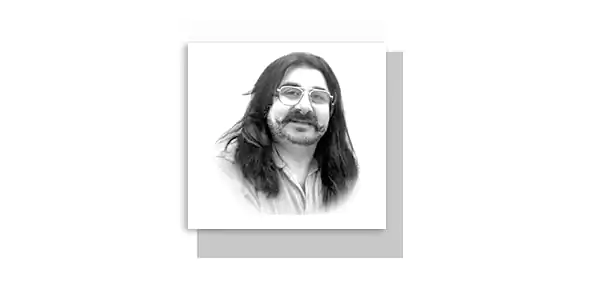FOR a country shaped by diversities, it is incumbent upon us, as citizens, to recognize the weight of responsibility that accompanies our freedom. Unity in diversity is a phrase which captures the essence of Pakistan. We have had our fair share of historical struggles to reach this point today, when we are leading globally across various sectors. As we observe the Independence Day on August 14, it is important for us to remember that the freedom earned by our predecessors brings with it a sense of responsibility to contribute to the nation’s growth.
Independence attributes us with our basic human rights which are the right to live, freedom of movement, freedom of expression, right to do business, right to vote and right to contest election. It is in fact value which grants sovereignty to our nation and gives us the freedom to live according to our culture, customs and collective wisdom. Independence has broader meanings which include; the state of being free from any foreign occupation or slavery or else achievement of right of self determination.
We had paid huge price and unprecedented sacrifices for the independence of a separate homeland for the Muslims of South Asia in the form of Pakistan. The sequel to War of Indian Independence-1857, the Muslim population of India was alienated by Colonial British rulers and the Hindu majority. This deep sense of alienation, discrimination and humiliation compelled the Muslims to think for their separate identity and ultimately a homeland of their own. Despite his efforts for reconciliation with Hindu leadership, Sir Syed Ahmed Khan had to say that when even the language of a nation is not safe at the hands of other nations in a region, it would be unwise to continue living with them.
Establishment of All India Muslim League in 1906, the 14 points of Quaid e Azam -1929 and Allahabad Address of Allama Iqbal-1930, gave further impetus for the establishment of a separate Muslim identity and a separate homeland for the Muslims of India. Hindu leadership totally dominated this so-called liberal platform and used it for their political and socio-economic gains. The Pakistan Resolution 1940 was a decisive moment and a milestone which paved the way for a Muslim homeland and in later years, Pakistan became the destination of Indian Muslims, living all over the subcontinent. Seven years from Lahore Resolution, on 14 August 1947, Pakistan became a reality. This indeed was the consequence of great efforts of our forefathers and painful history of discrimination from Hindu and colonial rulers.
Today, anti-Pakistan forces have multiplied and become more lethal, with both covert and overt presences within and outside the country. The challenges Pakistan faces are more critical and dangerous than those encountered during its founding. Longstanding adversaries are regrouping in new forms, employing treacherous strategies aimed at destabilizing the state. These challenges, both internal and external, are deeply linked with Pakistan’s enemies and manifest in extremism, radicalization, and terrorism. Their goal is to erode the social fabric and ideology of the nation, threatening the very foundation of the state and society.
We have been witnessing these tendencies in a more recurrent and rambling way since we have stepped in 21st century. These factors have damaged the traditional coherence and harmony, the Pakistani society enjoyed for centuries. Social structure and ideological bondage of Pakistani society is being shattered through the promotion of ethnicity, sectarianism and radicalization. They could not develop a counter narrative against the quite visible strategies of the anti-state forces. Rival forces could solely and gradually proliferate into the roots of the peaceful Pakistani society to create a fissure and exploit those subsequently, the political leadership, the religious scholars, intellectuals and academics are found wanting in playing their desired role of maintaining the harmony and coherence in the society. Sometimes, it acted as a tool for furthering those narratives, which ultimately harmed the national integration, deliberately or otherwise. Pakistani media could neither conceive nor pursue a role it should have played for the promotion of national integration and social cohesiveness.
Since security forces have played their crucial part, it is now essential that political forces, religio-political groups, religious scholars, academia and Pakistani society as a whole contribute to consolidating the gains achieved through combating militancy and dismantling organized bases. The defence forces of Pakistan have conducted numerous military operations to destroy these bases; however, a persistent mindset and splinter groups still exist, capable of carrying out sporadic attacks. The achievements of the security forces in this regard deserve special appreciation and recognition for their significant role in maintaining national security.
We need to utilize all our energies for the promotion of unity, development of our nation through academic excellence, social cohesion and harmony, development of youth, economic well being of the country and, above all, through technological advancement in line with modern nations of the world. We also need to reject all the internal fault-lines; ethnicity, factionalism, provincialism and sectarianism by becoming true Pakistani. We should also crush all the conspiracies being hatched against the state, society and ideology of Pakistan.
—The writer is author of several books based in Islamabad.
(naveedamankhan@hotmail.com)










